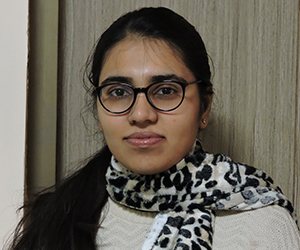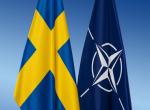If it happens once, it’s a mistake. If it happens twice, it’s a choice, and if it continues happening, then it sets a trend. In his tenure of over three years now as the President of the Maldives, Abdulla Yameen Abdul Gayoom seems to be setting an egregious trend of actions and initiatives that is assessed as major contributor to growing state of political turmoil in the country. Starting from his ascendancy to the highest office, which was a product of a back door deal with Gasim Ibrahim, to a string of political ousters to eliminate dissent, Yameen’s rule has been full of conflicts and confrontations.
In continuation with the above trend, the Majlis passed a bill in August 2016 that criminalizes defamation and amended the law of Public Gathering that requires written permission from the police force for street protests. When protest pertaining to these anti-liberal changes started cropping from within his own political party, the Progressive Party of Maldives (PPM), Yameen went a step further by trying to ride over the authority of the party chief, his own half- brother and former President, Moumoon Abdul Gayoom. In fact this intra-party, intra-family rivalry was confirmed when Moumoon Gayoom’s daughter and then the serving Minister of Foreign Affairs, quit the office in July 2016 on account of ‘irreconcilable disagreements’ with the government's decision to implement the death penalty. So the magnitude of Yameen’s challenges assumed graver dimensions since he was confronting opposition not only from the international community but also from elements within the country; within his own political party and now from within the family. His every single attempt at power consolidation was only winning him a new opposition.
In the midst of all these, BBC carried a report on August 26, 2016 of an impending plot to remove President Yameen from power. Around the same time Al Jazeera came up with a documentary titled ‘Stealing Paradise’ highlighting wide spread corruption under the current regime. Government’s response to these was described as ‘muddled’. The government believed that Nasheed, in cahoots with Al-Jazeera, was the man behind the release of the ignominious documentary.
As on date, all four key opposition leaders are either in prison or charges are pending against them. Starting with Mohamed Nasheed who is already sentenced to thirteen years in prison has once again been charged with terrorism. Sheikh Imran of Adhaalath Party is imprisoned without trial whereas Gasim Ibrahim of Jamhooree Party is arrested on trumped charges. The present status of Maumoon Abdul Gayoom is that he stands dismissed from his own political party by the President.
Many analysts and security experts are looking at the Maldives for one more reason - albeit a negative one - which is rising traction for Wahhabi ideology and its probable implications on the security architecture of the country and the region. Recent killing of young independent blogger, a secularist and human rights activist Yameen Rasheed on April 23, 2017 has galvanized the attention of the international community on this trend of murders and abduction that represent a new type of violent discourse. Now the first logical course of action for the radicals would be to undermine the authority, yet the suspicious actions of police after Yameen Rasheed’s murder by washing the crime scene, repainting the blood-spattered wall, and preventing anyone from taking photographs, casts doubts on government’s intent. As Azim Zahir observes, “These discourses are related to the country's political context, and thrive on the failure of its non-religious politics, as well as its fragmented religious landscape.”
The Yameen regime has unabatedly and systematically dismissed the allegations of abuse of power under the ‘nascent democracy’ card which has been the linchpin of government’s every single defence. Under the circumstances, all players other than President Yameen, acknowledge that the big picture needs readjustment and various political forces are assessing their options accordingly. Various initiatives are being contemplated both at the individual and collective levels, three of which are mentioned below.
Initiative1: Led By Former President Mohamed Nasheed
A week after he was granted asylum in United Kingdom, Nasheed had launched a multi-party opposition platform in London in May 2016.Through that platform, he sharply criticized the regime for its ongoing ‘oppression’ and pledged to lead the fight for restoration of democracy in the Maldives. The fact that the shadow cabinet of multiparty opposition includes many exiled leaders affiliated to different political parties’ highlights urgency of situation. Although Nasheed has maintained that ‘military coup is not legal’, he has also pointed out that time was ripe for overthrowing the Yameen government as the President was not able to carry with him a sizable section of his own party, the parliament and his own family. Maldivian government fears a plausible revolt by this opposition. It must however be mentioned that with Supreme Court upholding Nasheed’s 13 year jail sentence, the former president has already lost the opportunity to contest next year’s (2018) Presidential Elections and therefore only Nasheed-led initiative is unlikely to gain much traction.
Initiative2: Led By Former President Moumoon Abdul Gayoom
Former President and party Chief Moumoon Gayoom, who ruled Maldives for three long decades, is now known to be not on the same page as the current President. The ‘cold war’ between them came to the fore with the rushed appointment of former Vice President Ahmed Adeeb, a Yameen loyalist, who was ironically later convicted in Yameen’s assassination plot. He also figured prominently in the Al-Jazeera documentary for embezzlement of funds and misuse of power. The feud between the two Gayooms became public in June 2016 when the senior Gayoom refused to grant Yameen the PPM ticket for the 2018 polls without going through party primary. Senior Gayoom also publicly criticised constitutional changes made by the Yameen government in July 2015 to authorise foreign free holdings of land in the Maldives.
As of now, the ruling PPM has 47 MPs in the 85 member Majlis, and the senior Gayoom loyalists within the PPM can abstain or refuse to participate in voting. His own son was expelled by PPM disciplinary committee after he voted against a government-sponsored bill at his father’s behest. Although the decision was not enforced by PPM secretariat, an attempt to remove Maumoon Gayoom’s son and resignation by his daughter as Foreign Affairs Minister showed that the strife between two half-brothers had reached the ebb. Senior Gayoom has already stated that anti-defamation bill and amendment to the law of public gathering herald downfall of his work to bring modern democracy as they constrict freedom of expression and freedom of press granted by article 27 and 28 respectively, along with freedom of public gathering secured under article 32. This is a clear indication of his disapproval of Yameen’s government. However, it is not yet clear if and when the senior Gayoom will take recourse to this and whether he commands the required support within the party to stage an ‘internal political coup’.
Initiative 3: Led By Nasheed and Moumoon Gayoom with Other Opposition Leaders
Notwithstanding the history of confrontational relationship between Nahseed and Maoumoon Gayoom, where the latter had repeatedly jailed Nasheed for his activism during his 30-year near dictatorial tenure as President; the two leaders have lately come politically closer to counter the current President. Along with Sheikh Imran, Gasim Ibrahim and other exiled leaders, they have formed an alliance that aims to work against the government in the Parliament.
Another driving force behind this otherwise unlikely coalition must be the pressing need to ensure free Presidential elections in 2018. Given the fact that Nasheed is debarred from contesting and that senior Gayoom doesn’t want Yameen to contest for a second term, this option can gain some momentum as the time for finalization of election details nears. More than four years back, Maumoon Gayoom is believed to have orchestrated a political coup against Nasheed, but today’s political pragmatism compels him to win Nasheed over to his side as Nasheed has garnered considerable international support which in turn could help garner support for a legitimate constitutional recourse to topple Yameen. Thus, it could turn out to be a win-win situation for both while targeting at the same aim. Basically they want to ensure free and fair Presidential election in 2018 where they all can stand a fair chance. In a way, it replicates what has happened in Sri Lanka in 2015 Presidential election, when all political elements came together to challenge former Supremo Mahinda Rajapaksa. This, by far, could be the most potent and effective combination with the highest potential to bring about a regime change.
Whether these initiatives are mere pressure tactics or presumptions or can evolve into a popular movement, remains uncertain at this stage. Yameen is under the impression that he will always have his way. But this time around, he is considerably isolated within the country’ political equations and this has now become evident to all- from his family to foes to the international community. Given his diminishing credibility, it might become increasingly difficult for him to gather the required political support within, to thwart the building disenchantment against his continuance at the helm of affairs. The key question, however, will center on the ability and willingness of the forces opposed to his continuance, to work out a common political platform and put up an acceptable alternative.
Image Source: http://familypedia.wikia.com










Post new comment